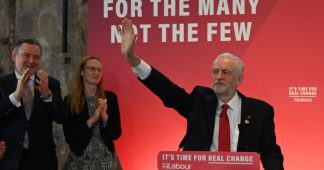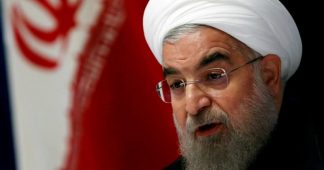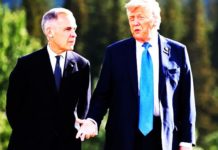The international community must send Britain a message: either stop selling weapons to the Saudis, or give up the UN penholder role for Yemen
By Peter Oborne
5 July 2021
It’s been more than six years since Saudi Arabia assembled its coalition of Arab states to attack Yemen. Since then, more than 230,000 people have died, with 24 million needing humanitarian aid and more than 13 million on the brink of starvation.
The United Nations says Yemen has become the “largest humanitarian crisis in the world”. While there are many reasons for the suffering, the most visible and devastating have been the Saudi-led bombings of towns, villages, infrastructure, hospitals and markets.
From the start, these murderous attacks have been sanctioned by the British government. The Cameron government supported King Salman when he declared war in March 2015, with then-foreign secretary Philip Hammond declaring Britain would “support the Saudis in every practical way short of engaging in combat”.
Despite a mountain of evidence of war crimes committed since, Britain has repeatedly asserted that there is no serious evidence the Saudis have breached international humanitarian law in Yemen. Indeed, Britain has been at the forefront of extending diplomatic protection to the Saudis, crucially blocking a Canadian-Dutch initiative for an independent inquiry into war crimes by all sides.
So why has Britain, which consistently boasts about its support for human rights, been ready to sustain such damage to its international credibility by unconditionally supporting Saudi Arabia in this murderous conflict? One powerful reason is arms sales: we now have fresh evidence of how intimately arms dealers are embedded in the British military-diplomatic machine when it comes to Yemen.
Secret meeting
Last month, the impressive new website Declassified UK published details of a secret meeting between the director of a major arms company and British defence and foreign ministers in January 2016, during the peak of Saudi Arabia’s Yemen bombardment.
No official record apparently exists of what was discussed at the meeting, attended by then-Defence Procurement Minister Philip Dunne and then-junior foreign minister Tobias Ellwood. According to Declassified, neither minister “declared the session on their departmental transparency logs of external meetings where ministers are required to record contacts with arms dealers”.
Tellingly, the meeting would never have come to light but for this year’s publication of the diaries of Alan Duncan, the former conservative minister who stood down at the last election. Duncan said the meeting was organised by the defence ministry’s “Gulf Advisory Committee” to discuss oil prices and future visits to Saudi Arabia by then-Prime Minister David Cameron and others.
Declassified says that ministers initially denied the committee’s existence, but later acknowledged there was a “Gulf Advisory Group” – yet, the government maintains there are no records of the minutes of the 2016 meeting. It did acknowledge that Richard Paniguian, then a director at the US weapons firm Raytheon, was invited to the meeting, but “we hold no records of the minutes of this meeting and cannot, therefore, confirm attendance”.
We must take ministers at their word that no records of this ministerial meeting exist. Nevertheless, the presence of Paniguian shows how central arms sales are to British policy in the Middle East – and this is disturbing.
Breaching rules of war
Six months after that meeting, I travelled to Yemen on behalf of Middle East Eye and discovered indisputable evidence that the Saudi-led coalition, backed by the UK, was targeting Yemeni civilians, in blatant breach of the rules of war. I also witnessed the pitiless destruction of Yemeni homes, while doctors told me that the UN-legitimised blockade of Yemen was preventing vital drugs and medical equipment from reaching the country.
This situation was tolerated under the Trump administration, but there is strong evidence that the international mood is belatedly changing. One of the first moves by US President Joe Biden after his inauguration was to halt the sales of all arms to Saudi Arabia that could be used for “offensive operations”. Other countries, such as Italy and Germany, have also halted arms sales.
Yet, to this day, the British government continues to export arms and to support Saudi Arabia.
There is an inconsistency here. When Britain ratified the Arms Trade Treaty in 2014, it insisted that arms should not be sold to countries in the case of an overriding risk that their use would conflict with international humanitarian law. But there’s abundant evidence of this with the Saudis and Yemen, as the Biden administration’s decision shows – even if Britain will not admit it.
Troubling contradiction
Meanwhile, the war goes on, causing untold misery. With an escalating rate of severe malnutrition in the midst of a global pandemic, the UN’s 2021 projections for Yemen are startling. More than 400,000 children under the age of five are at high risk of starving to death, while 1.2 million pregnant or breastfeeding women and 2.3 million children under five are expected to face acute malnutrition.
Britain has nevertheless announced that it’s cutting humanitarian aid for Yemen in 2021-22 by more than half, while billions of pounds in arms sales continue. Oxfam recently accused the British government of lengthening the Yemen war by permitting the export of air-to-air refuelling equipment that could be used to help the Saudis conduct indiscriminate bombing.
There’s a very troubling contradiction here. Since the start of the Yemen conflict, Britain has played the role of “penholder” for Yemen at the UN Security Council. Middle East Minister James Cleverly recently boasted about this in parliament, saying Britain has used this role “to help move the Yemen peace process forward, working with our partners and allies at the United Nations to ensure that Yemen continues to be a top priority for the international community”.
But Britain has a significant conflict of interest. On one hand, its arms trade benefits from the war and – as the Declassified revelation crucially shows – plays a role in policy construction. On the other hand, as penholder, Britain has a central UN role in advancing the peace process.
If the international community really wants peace in Yemen, it’s time to send Britain a message: either stop selling arms to the Saudis, or give up the penholder role for Yemen. To combine the two is immoral, wrong, and a betrayal of everything Britain claims to stand for on the international stage.
Published at www.middleeasteye.net











